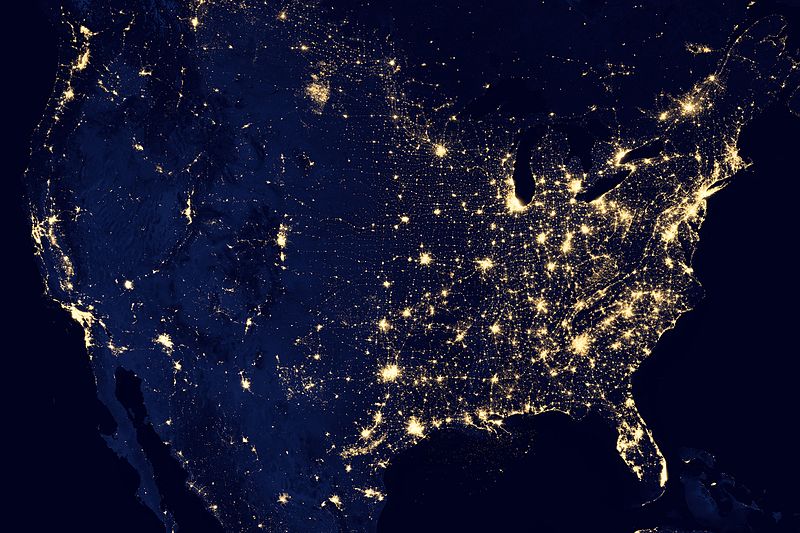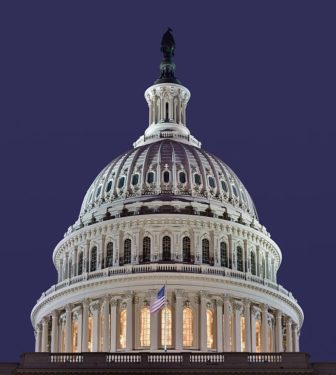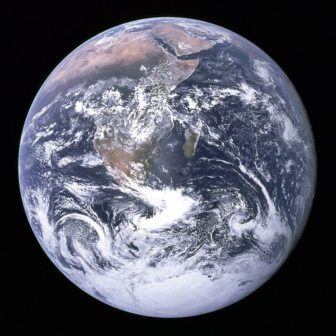The mainstream media is widely reporting the most obvious planet-wide impacts of the U.S. government’s recent drastic shift away from policies protecting the environment, in favor of extraction, development and fossil fuels. The media has, for example, reported intensively on the Trump administration’s backpedaling on U.S. climate commitments.
But there are other policy initiatives in the pipeline, from both the Trump administration and Congress, which will likely have major international repercussions for the global environment — policies that the media are not reporting widely.
Over the coming months, Mongabay will utilize its international team of contributors and its reputation for insightful reporting on global environmental issues to investigate and analyze international ecosystem impacts resulting from shifting U.S. policies.

What we are looking for: Mongabay is looking for untold stories of repercussions that new U.S. policies will have on the ground outside the United States, in other nations or regions — impacts on foreign ecosystems, habitats, forests, endangered species and indigenous peoples around the globe. For an example, read this story by journalist Sharon Guynup on how a leaked Trump draft conflict mineral policy could seriously impact African gorillas.
Articles will cut through political rhetoric, move beyond the chaos of headlines, spin and tweet storms, and analyze what’s really happening in the global environment as a result of actual policy shifts, regulatory changes, new trade agreements, etc.
While we enthusiastically welcome pitches from U.S.-based contributors, we are keen to receive pitches from journalists outside the United States who can offer a fresh perspective on American policy impacts and international responses to them.
 For this initiative, we are not interested in covering the 24-hour news cycle or in stories with short shelf lives. Nor are we interested in covering domestic impacts occurring in the United States (many other media outlets are already doing this job well).
For this initiative, we are not interested in covering the 24-hour news cycle or in stories with short shelf lives. Nor are we interested in covering domestic impacts occurring in the United States (many other media outlets are already doing this job well).
Stories need to be thoroughly researched and written without political bias. Contributors will reach out to a wide range of sources, including the Trump administration and Congress, to shed light on all sides of the issues.
Our hope is that Mongabay will become the go to source for readers who want to know how U.S. policies are reshaping the natural world in concrete ways.
Story Pitches:
Potential contributors are invited to make pitches based on the ideas listed below, or to propose their own original ideas:
- Overview story outlining the series focus: This summary will offer the big picture, contributing examples of how policies currently proposed by Pres. Donald Trump and the U.S. Congress might/will impact countries and ecosystems around the world.
- Focus on specific region, country, ecosystem, or species: Would take a close look at how a shift in US policy by the Trump administration or by Congress is impacting a particular part of the world, habitat or species.
- International impacts of weakening U.S. environmental policies/regulations: Many countries follow policies established by the United States as “best practices.” However, this may now change as the U.S. abandons its global environmental leadership role. Now that the U.S. has pulled back on its climate change commitments, for example, will other nations such as Brazil be emboldened to follow suit, backing off from deforestation and emission reduction commitments under the Paris Agreement?
- Impacts on overseas development aid; US Agency for International Development: USAID assists in conserving and protecting land, water, forests, and wildlife abroad, and in supporting projects to reduce greenhouse gas emissions and for building resilience to climate change risks. The U.S., for example, has provided around $100M/year for tropical forests going back to the late 1980s (ratcheted up to $200-300M/year under Pres. Obama). What’s at stake if these programs are slashed or eliminated? And does the Trump administration / Congress plan to reduce USAID environmental funding?
- Impacts on UN funding / joint ventures: President Trump has proposed cutting payments to both the Green Climate Fund (part of the UN Framework Convention on Climate Change), and the Climate Investment Funds. If Congress approves those cuts, what will that mean for international climate change efforts? Also, The U.S., as part of its UN commitment, contributes to the UN Environmental Programme, and likewise to international climate change research and monitoring programs. How would the loss of funding and participation in such joint efforts impact these sorts of global partnerships?
- Corporate response to U.S. Policies: Changes in federal policies are altering how companies do business around the world, with a variety of environmental impacts. For example, Pres. Trump’s proposed easing of conflict mineral regulations could result in an increase in corporate imports of conflict minerals from the Democratic Republic of the Congo, potentially impacting wildlife there including Grauer’s gorillas.
- Impacts on the Commons: The planet’s atmosphere, cryosphere and oceans are part of the global commons — environments shared by the world’s nations as both a resource and a responsibility. What effect, for example, might a just introduced House bill, the “Modern Fish Act” have on global fisheries and the world’s oceans? The bill would rollback the Magnuson-Stevens Fishery Conservation and Management Act and allow fishery managers to consider alternatives to annual catch limits and the current 10-year limit on rebuilding fish stocks.
- Impacts on trade treaties and agreements: The Trans-Pacific Partnership (TTP) trade treaty, according to many experts, was likely to have adverse environmental effects. What environmental impacts might Trump’s abandonment of TPP have (will China now gain a dominant global trade position, for example)? And what impacts might re-negotiating NAFTA have, or the drafting of other new trade agreements?
- Impacts on U.S. environmental treaty commitments: How might U.S. policy shifts impact the implementation and enforcement of environmental treaties to which the U.S. is a signatory, such as the Migratory Bird Treaty, the Convention on International Trade in Endangered Species of Wild Fauna and Flora (CITES), the Vienna Convention for the Protection of the Ozone Layer, etc. Could relaxations of U.S. regulations result in treaty violations?
- Shifts in border policy: The Trump administration has proposed a 97 percent cut in EPA funding to clean up the Great Lakes. It has also proposed ramping up U.S. coal production and coal burning which could increase cross-border air pollution. What impacts would these actions have, and would they violate international border agreements (the U.S.–Canada Air Quality Agreement or the Convention on the Protection and Use of Transboundary Watercourses and International Lakes)? How might Trump proposed EPA and Coast Guard cuts impact U.S. oil spill cleanup readiness in the Gulf and in other international waters?
- Potential loss of future marine protections: House Republicans are targeting marine monuments and sanctuaries to examine their “creation and management.” Legislators will be looking at concerns from the fishing industry in both Hawaii and New England (where Pres. Obama created the first northeast Marine National Monument); the industry argues that marine monuments unfairly limit fishing grounds.
- Targeted budget cuts of specific programs: The Trump budget would slash specific NASA missions designed to study climate change, including the Plankton, Aerosol, Cloud, ocean Ecosystem mission, the Orbiting Carbon Observatory-3 mission and the Climate Absolute Radiance and Refractivity Observatory Pathfinder mission. How would the loss of those missions impact climate research and global readiness for climate change?
- Changes in international perceptions: The United States has long been seen as a leader in environmental policy. As the administration and Congress reverse environmental protections, policies and investments, how is the U.S. being perceived abroad? How, for example, will the world’s religions — most of which committed themselves to the goals of the Paris Climate Agreement — view the United States?
- Before and after stories: These types of stories will reflect how a specific policy change is manifesting on the ground by looking at conditions during past administrations as compared to now. For example, might Trump’s coal-friendly policies increase U.S. coal exports, which were falling during past administrations, resulting in increased coal burning trends around the globe? Or how might Trump’s relinquishing of climate change policy leadership (as conducted under Obama) change the world?
Article length / photos:

Each story will be 1,000 to 2,000 words in length. Stories will be paid on a per word basis, up to a maximum of 2,000 words. Articles will include quotes from at least 3 or 4 original interviews obtained either in person or via email, phone or skype. Authors will be expected to hunt down 6-10 publishable photos to accompany each article (likely provided by those interviewed, or found free of copyright restrictions online). All articles need to include a list of numbered pictures with numbered captions and photo credits.
Send us your query, or queries — 400 to 500 words for each proposed story, summarizing the article you wish to write, telling why this is an important or relevant topic, saying who you will be interviewing, and listing some research sources — along with your journalism resume and clips. Applications must be submitted in English.
Deadline for submissions: September 30, 2017.
We look forward to hearing from you!